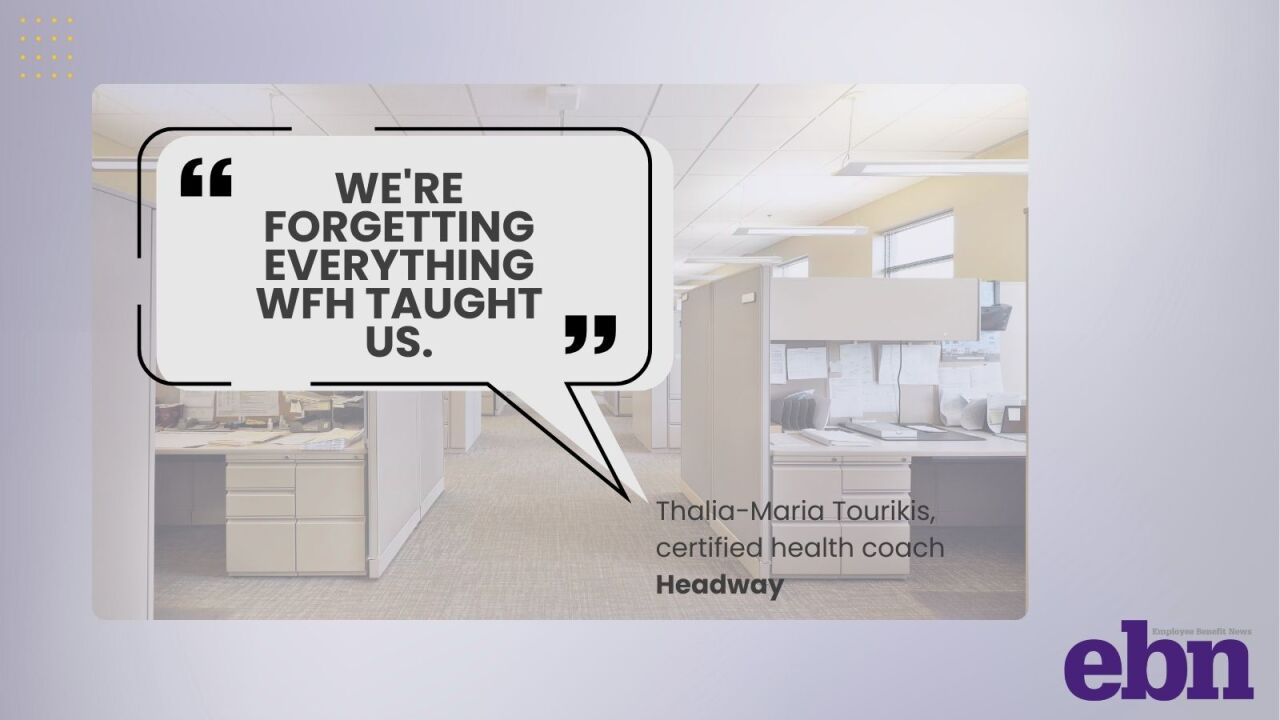Confrontation. It's the
Raise your hand if you're uncomfortable with being direct, assertive, speaking up, having difficult conversations or
I can't see you (of course), but I'd be willing to bet that every single person reading this has struggled with at least one of these at some point. Because let's be honest: Confrontation doesn't come naturally to most of us. It's easier to nod along, say yes when we mean no, or hope the issue magically disappears. Spoiler: it doesn't.
When I use the word confrontation, I don't mean aggression, conflict or picking a fight. My definition is simple: Confrontation is dealing directly with someone or something you've been avoiding out of fear.
That might look like a boundary-setting conversation with a colleague, an assertive "no" when you're at capacity or finally
We sometimes pretend our "work self" and "life self" live in separate boxes. They don't. The skills we avoid or develop in one place show up everywhere else.
If you struggle to speak up in a meeting, chances are you also struggle to speak up at home — with your partner, friends or even your kids. If saying "no" feels impossible in the office, it probably feels impossible at the family dinner table, too.
Learning to confront directly — respectfully, honestly — becomes a life skill. It builds stronger marriages, healthier friendships and clearer parent-child relationships, just as much as it builds stronger teams and workplaces.
Read more:
Cost of avoidance
Avoidance is always costly, but the price skyrockets when the avoider is in a leadership role. When leaders can't or won't confront:
- Resentment festers. Team members see unfair behavior go unchecked or poor performance slide by — and morale plummets.
- Boundaries blur. Without clear limits, people burn out under unrealistic workloads or unclear expectations.
- Conflict escalates. Problems that could have been solved with one honest conversation snowball into HR issues, legal complaints or resignations.
Credibility erodes. Employees notice when leaders dodge the hard stuff. Respect and trust vanish quickly.
The irony? Leaders often avoid confrontation because they want to protect harmony. But avoidance doesn't protect — it destroys it.
Benefits of healthy confrontation
So, what happens when organizations embrace confrontation as a healthy, everyday practice?
- Clarity replaces confusion. Direct conversations cut through mixed messages. Teams move faster when expectations are explicit.
- Trust deepens. Speaking the uncomfortable truth respectfully shows respect for both yourself and the other person. That honesty strengthens relationships.
- Accountability sticks. Boundaries and standards aren't vague – they're spoken, agreed on and reinforced.
- Conflict shrinks, not grows. Addressing issues early keeps them small, preventing the blow-ups that HR is too often asked to clean up.
Employees feel empowered. When people see confrontation modeled as a normal, healthy act, they gain confidence to do it, too.
Read more:
Role of consultants
HR and benefit consultants have a unique chance to normalize confrontation inside organizations. Some ways to make it stick:
- Offer frameworks and language. Scripts and role-plays for difficult conversations help people build muscle memory for doing the right thing.
- Coach leaders first. If executives and managers model avoidance, the culture will, too. Equip leaders to lead with honesty and courage.
- Create psychological safety. Employees need reassurance that respectful confrontation won't be punished.
Rebrand confrontation. Help organizations shift from seeing it as "conflict" to seeing it as clarity, care and accountability.
And here's the thing: If you're consulting on these issues, ideally you've already mastered them yourself. Otherwise, it's like handing someone a map you've never followed. Your clients can sense when advice is in theory instead of a lived skill. If you haven't yet mastered the art of confrontation, it's worth investing in learning — whether that means practicing deliberately, enrolling in training or (hint) hiring someone to help you.
Ultimately, this isn't just about productivity metrics or turnover rates. It's about human beings learning how to show up honestly, directly and courageously with each other.
An employee who learns to set boundaries at work is more likely to set them at home, preventing burnout in both places. A manager who learns to have honest conversations about money in the office might finally have honest conversations about money at the kitchen table. A leader who develops the courage to give feedback also develops the courage to hear it.
When HR consultants encourage organizations to embrace confrontation, they're not just fixing workplace culture, they're helping ripple healthier patterns into families, communities and relationships everywhere.
Read more:
A helpful reframe
One of the biggest fears people carry about confrontation is: "What if I hurt someone's feelings?" That fear keeps many of us quiet, even when silence causes bigger problems down the road.
Here's an adage that helps: What I say is about me, and how you hear it is about you.
We can't control how someone interprets what we say. We're not mind readers. If your intention is to be clear, respectful and honest, you've done your part. How the other person hears your words will always filter through their own lived experience.
So instead of apologizing the moment someone reacts strongly, try this: ask, "What did you just hear me say?" That simple question, coming from a place of curiosity, opens the door to clarity. If there's a misunderstanding, you can clear it up on the spot, without collapsing into guilt or backpedaling.
Confrontation becomes much easier when you stop thinking you can manage someone else's emotional response and, instead, focus on keeping your own communication clean.
Starting the conversation
So many of my clients often tell me they need to have a difficult conversation but don't know how to start. Even with the best intentions, the hardest part of confrontation is often just starting. And here's one rule: never begin with, "We have to talk." Those four words make people brace for impact.
Instead, try something that lowers defenses and signals honesty:
- "Do you mind if I make an observation?"
- "I have something I'd like to say, but I may not have the clarity I need for it to come out smoothly. Can you bear with me while I find my way?"
- "I need your help with something."
Read more:
That last one works especially well because the "help" you're asking for is simply their willingness to listen. People like to help, so framing it this way can create a sense of partnership rather than opposition and keeps them present.
Confrontation isn't about conflict. It's about courage. It's the decision to stop avoiding the uncomfortable and to move toward honesty, clarity and respect.
Avoidance costs organizations money, time and talent. But worse, it costs people their sense of empowerment and dignity. When leaders and employees alike learn to confront directly and compassionately, everyone wins.
So, the next time you feel yourself shying away from a conversation, remember: the discomfort of confrontation lasts minutes. The cost of avoidance lasts months or years.






